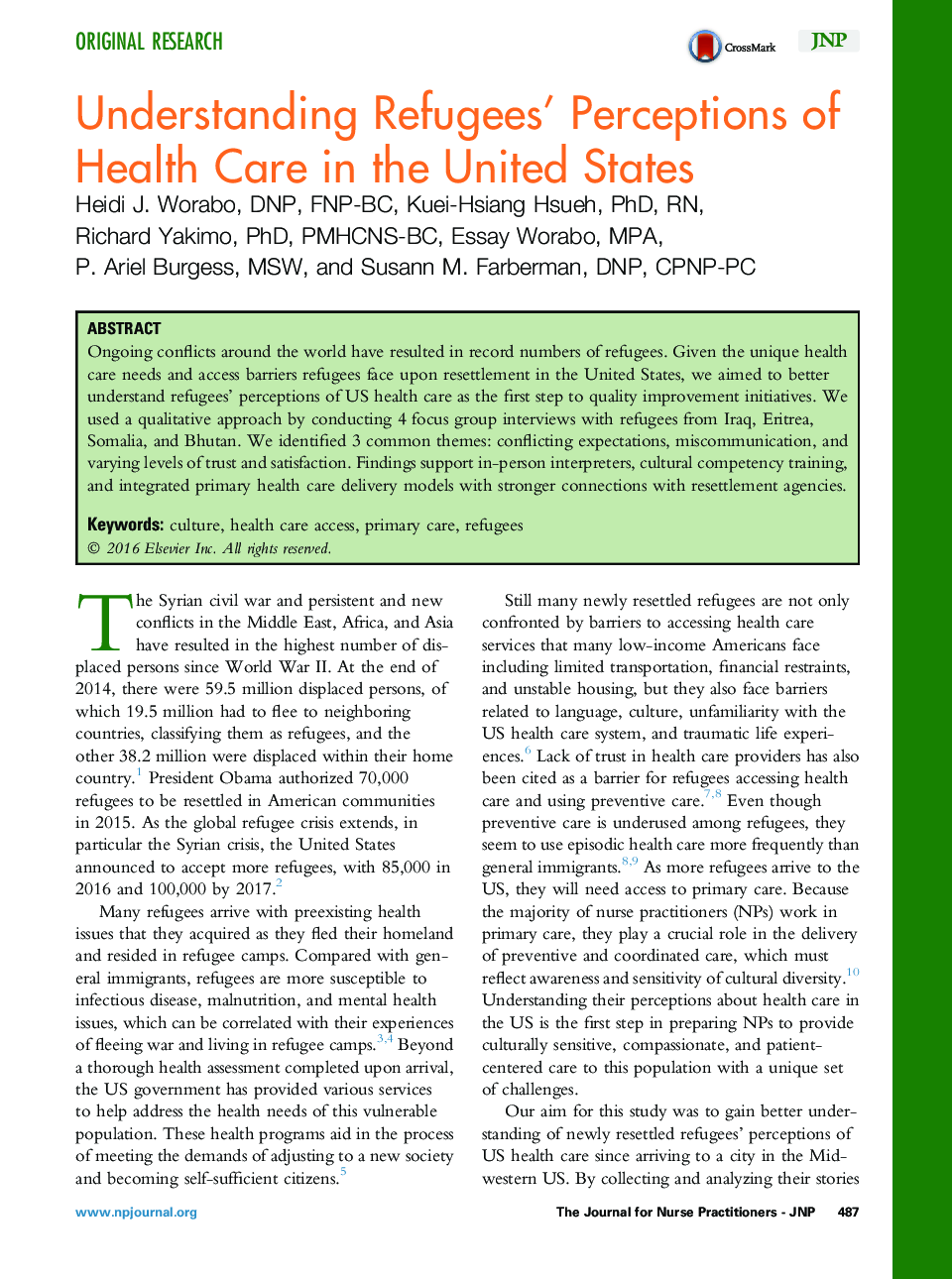| Article ID | Journal | Published Year | Pages | File Type |
|---|---|---|---|---|
| 2660354 | The Journal for Nurse Practitioners | 2016 | 8 Pages |
•Conflicting expectations, miscommunication, and varying levels of trust and satisfaction were found to be themes emerging from focus groups with refugees.•Findings support improved interpretation services and cultural competency training for health care providers to improve communication and trust.•Implications for health care delivery with refugees include stronger connections between refugee resettlement agencies and primary care providers and innovative primary health care models that include walk-in service options.
Ongoing conflicts around the world have resulted in record numbers of refugees. Given the unique health care needs and access barriers refugees face upon resettlement in the United States, we aimed to better understand refugees’ perceptions of US health care as the first step to quality improvement initiatives. We used a qualitative approach by conducting 4 focus group interviews with refugees from Iraq, Eritrea, Somalia, and Bhutan. We identified 3 common themes: conflicting expectations, miscommunication, and varying levels of trust and satisfaction. Findings support in-person interpreters, cultural competency training, and integrated primary health care delivery models with stronger connections with resettlement agencies.
